Post-traumatic stress disorder (PTSD) is a chronic mental health issue that can occur when after someone has witnessed or experienced a traumatic event. PTSD impacts millions of Americans, meaning a significant number of people will experience PTSD signs and symptoms at some point in their life.
Following trauma, one will experience upsetting memories that might cause them to have trouble sleeping or feel anxious, among other symptoms. For most, PTSD symptoms gradually disappear over a relatively short time. Still, for others, symptoms remain and may even get worse.
If you suspect a friend is experiencing symptoms of PTSD, call Athens Recovery at 844.959.4998 to learn about our outpatient PTSD treatment program in Georgia.
Recognizing Signs of PTSD in a Friend
While the terms “signs” and “symptoms” are often used interchangeably, they can have different meanings in the context of PTSD. In general, signs are objective indicators observable to others, while symptoms are subjective experiences for the individual.
The following are observable signs of PTSD in a friend or loved one:
- Avoidance – Individuals with PTSD may avoid reminders of the traumatic event, such as people, places, or activities.
- Hyperarousal – Your friend may seem easily startled, have difficulty sleeping, or experience angry outbursts.
- Flashbacks – A person might relive the traumatic event through intrusive memories, nightmares, or distressing thoughts.
- Adverse changes in thoughts and mood – Your friend may exhibit persistent negative thoughts about oneself or the world, feelings of detachment, and diminished interest in activities once enjoyed.
- Increased substance abuse – Individuals with untreated PTSD often rely on drugs or alcohol as self-medication to relieve symptoms.
If you recognize signs of PTSD in a friend, it is critical to encourage them to seek professional help for a proper diagnosis and treatment.
Recognizing Symptoms of PTSD in a Friend
As mentioned, the symptoms of PTSD refer to the subjective experiences of an individual, so they may be harder to recognize. It’s also important to remember that everyone experiences PTSD differently. Symptoms of PTSD in a friend can include:
- Intrusive memories – Individuals with PTSD often experience intrusive thoughts, memories, flashbacks, or nightmares about the traumatic event.
- Mood changes – Your friend may feel persistent fear, horror, anger, guilt, or shame.
- Cognitive changes – A person may have difficulty concentrating, memory problems, or distorted beliefs about themselves or the world.
- Emotional numbing – People with PTSD often feel emotionally detached, have a limited range of emotions, or have difficulty experiencing positive emotions.
- Changes in reactivity – PTSD can cause increased irritability, aggression, self-destructive behaviors, or an exaggerated startle response.
- Increased anxiety – Individuals with PTSD may experience anxiety, panic attacks, or both.
The manifestation of PTSD is different for everyone, so not everyone will experience all of these signs and symptoms. Additionally, the severity and duration of signs and symptoms can vary.
How to Help a Friend with PTSD
While PTSD requires professional treatment, there are several things you can do to support a friend or loved one, such as:
- Being supportive and non-judgmental – Listen without judgment and offer a safe space for your friend to express their thoughts and feelings.
- Respecting boundaries – Understand that your friend may not be ready to talk and that some situations or topics may be triggering, so you should respect their need for space.
- Stay connected – Do regular check-ins with your friends to demonstrate your support and help prevent them from isolating.
- Offer practical assistance – Help with daily tasks or offer to do things to ease their burden, especially if you know a task is a potential trigger.
- Encourage healthy coping strategies – Support activities that promote relaxation and stress management.
- Educate yourself – Learn about PTSD to better understand what your friend is going through.
In supporting a friend with PTSD, try to avoid giving unsolicited advice or telling them what they “should” do, as this may push them away. Remember that PTSD is a complex mental health condition that requires professional treatment and isn’t something your friend can “snap out of.”
Contact Athens Recovery Today for PTSD Treatment
At Athens Recovery, we know how challenging PTSD can be for the affected individual and those around them. We also know that with proper treatment, it is possible to overcome the trauma that leads to PTSD and other mental health issues.
Call us at 844.959.4998 or complete our online form to learn more about recognizing the signs and symptoms of PTSD and how you can help a friend or loved one and yourself.

